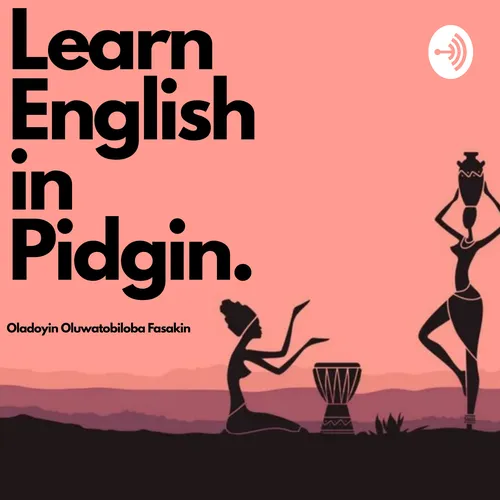
LEARN ENGLISH IN PIGDIN
The purpose of this podcast is to entertain us, make us laugh and relax while learning the English language. It is a little twist; a deviation from the normal conventional way of teaching the English language. We will be learning the correct usage of English grammar, words, spellings and punctuations only that the language of communication will be Pidgin English also called Broken English in Nigeria.
- Update frequency
- every 8 days
- Average duration
- 4 minutes
- Episodes
- 29
- Years Active
- 2020 - 2021
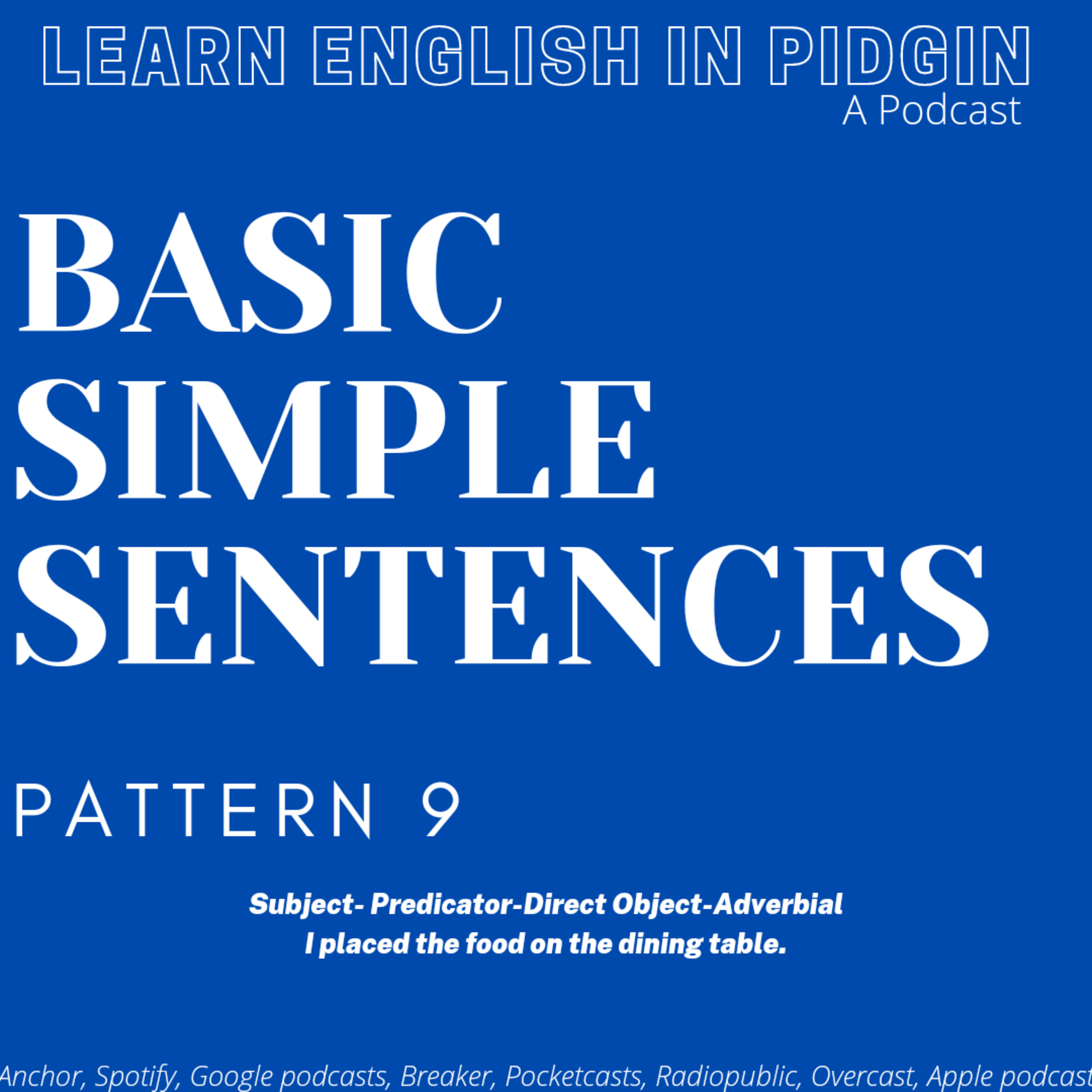
PATTERN 9 (BASIC SIMPLE SENTENCES)
Pattern 9 is the last pattern used in forming a basic simple sentence. This pattern has 4 parts: Subject, Predicator, Direct Object, and Adverbial. In the previous episodes, subject, predicator, and …
00:04:11 |
Sat 08 May 2021
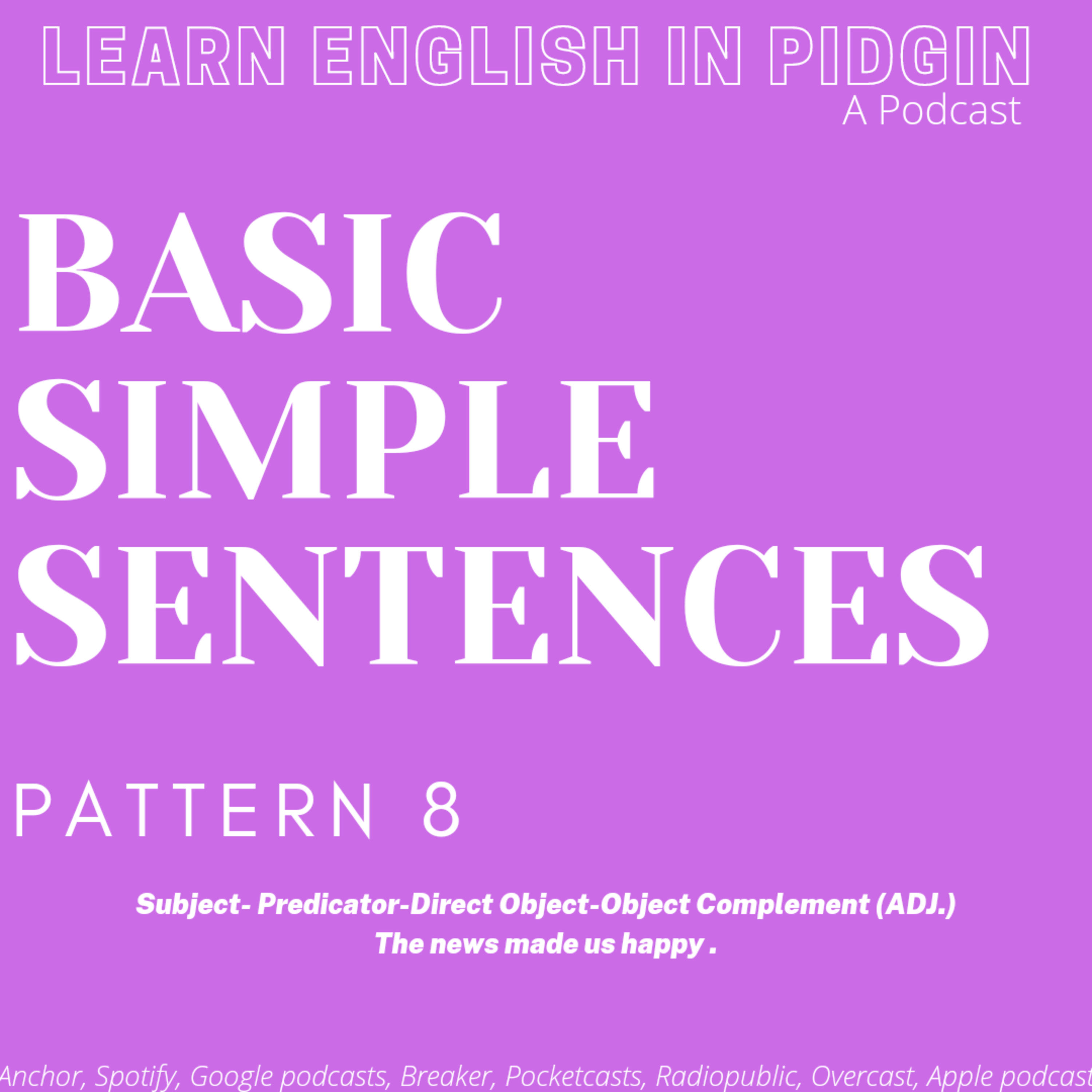
BASIC SIMPLE SENTENCES (PATTERN 8)
Pattern 8 of the basic simple sentences has 4 parts: Subject, predicator, direct object, and adjectival object complement.
The adjectival object complement is realised with adjectives, and adjectival…
00:02:57 |
Fri 02 Apr 2021
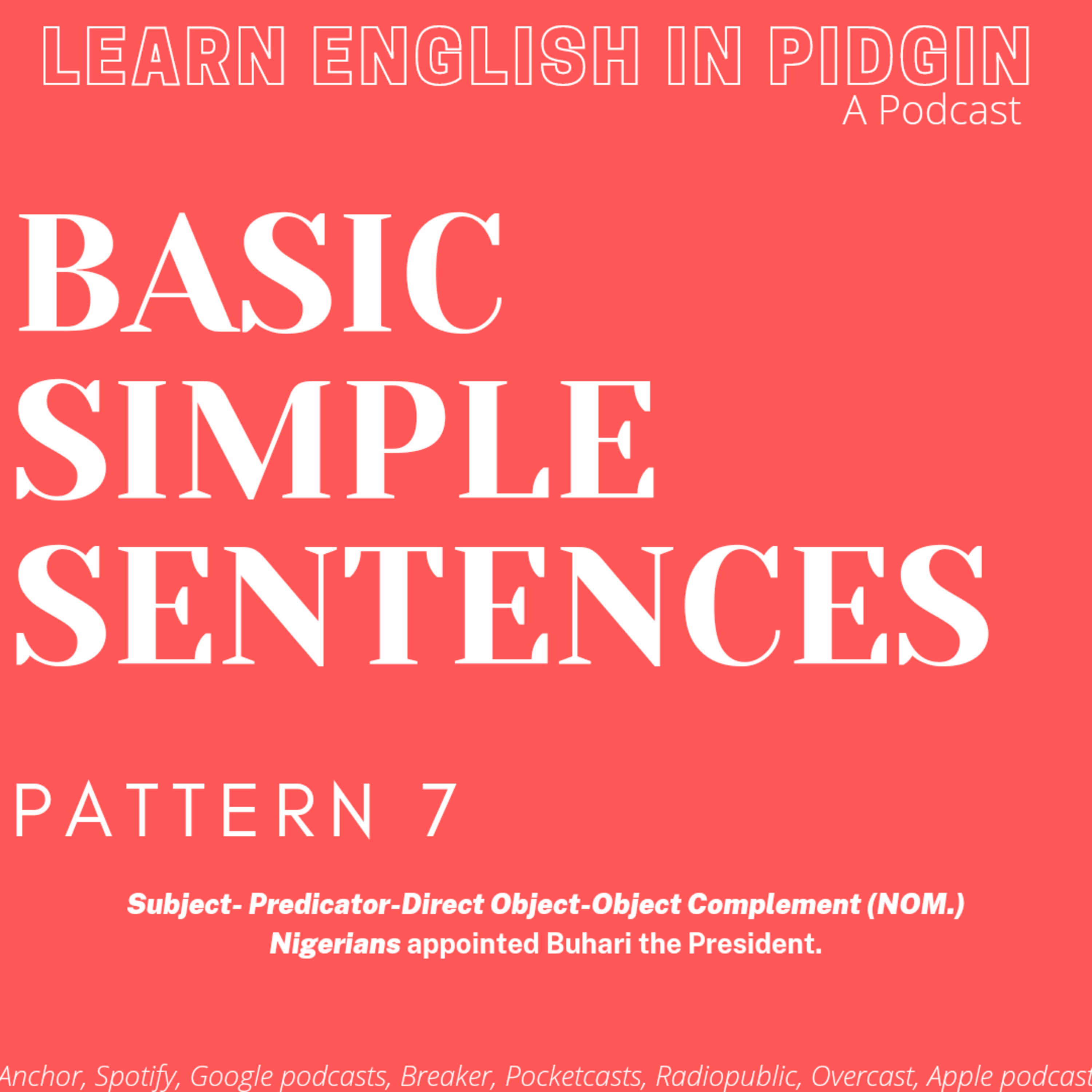
BASIC SIMPLE SENTENCES (PATTERN 7)
Pattern 7 of the basic simple sentences has 4 parts: Subject, predicator, direct object, and nominal object complement.
The nominal object complement is realised with nouns, nouns phrases, and pronou…
00:03:01 |
Sat 27 Mar 2021
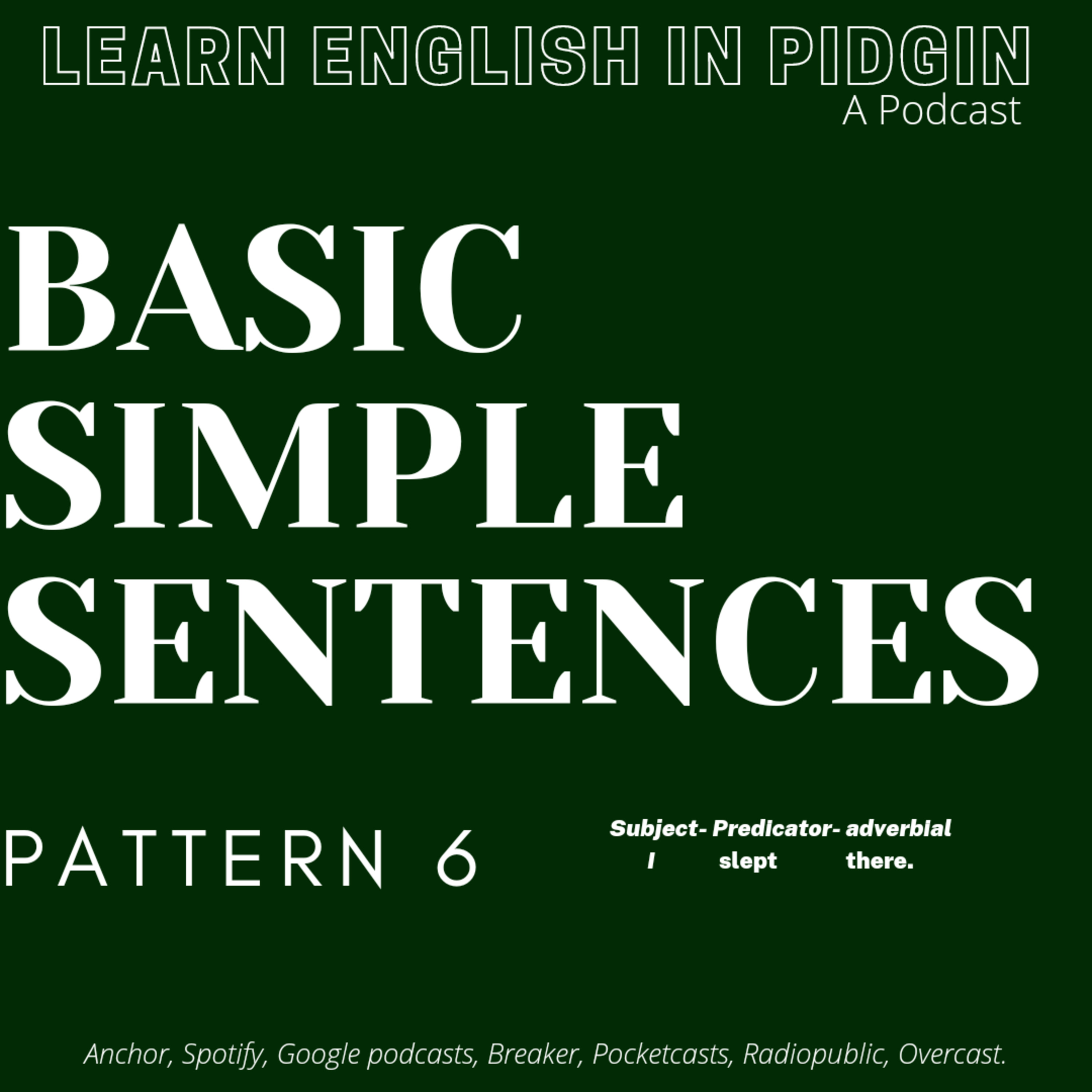
BASIC SIMPLE SENTENCES (PATTERN 6)
The 6th pattern for forming the basic simple sentences has 3 parts: subject, predicator, and adverbial.
The subject performs the action of the sentence.
The predicator is the verb and in this pattern…
00:04:52 |
Sat 06 Mar 2021
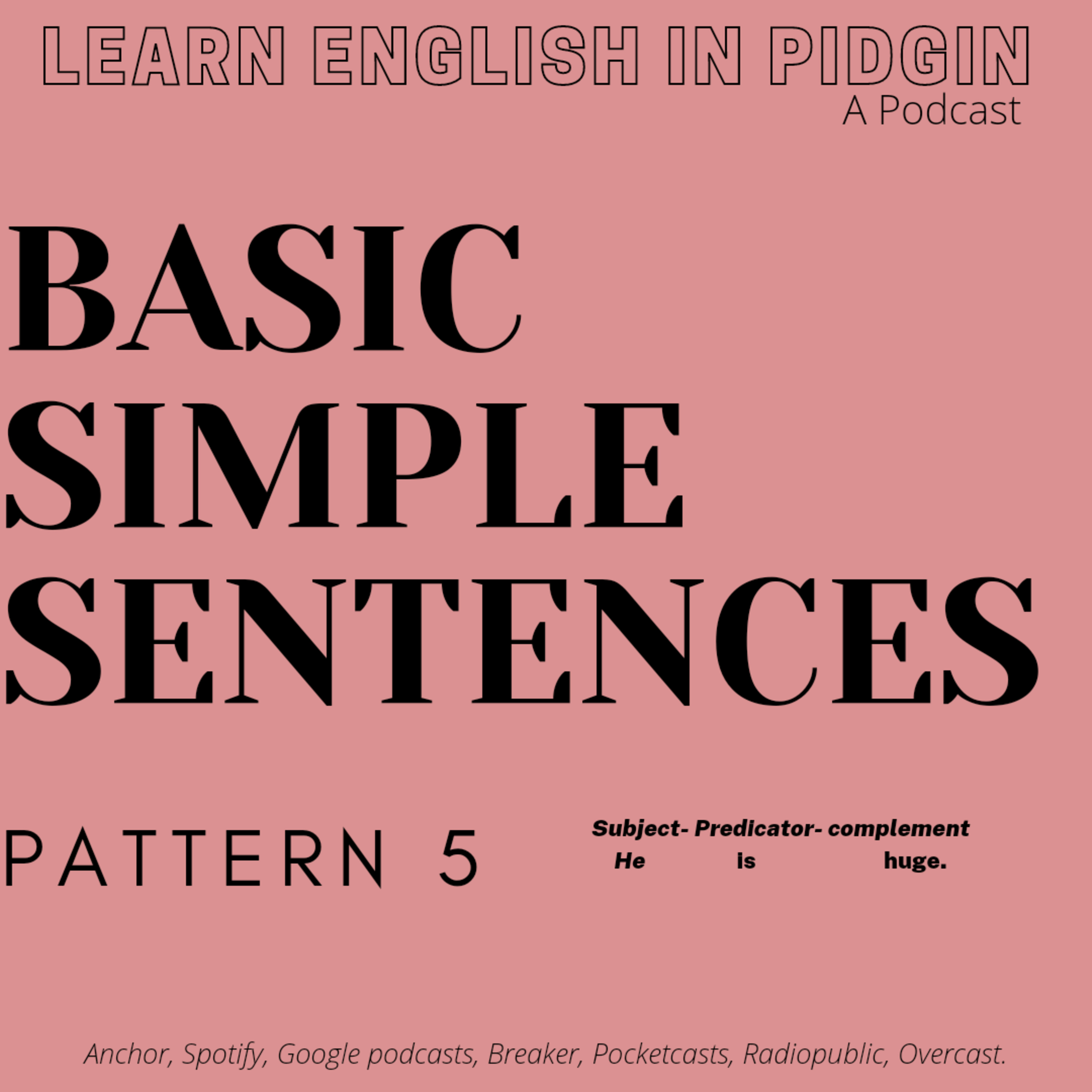
BASIC SIMPLE SENTENCES PATTERN 5
Pattern four and five are the same: SUBJECT–PREDICATOR–COMPLEMENT.
The difference is that the complement in pattern four is nominal complement:
He is my teacher.
"My teacher" is a noun phrase.
While …
00:02:09 |
Sat 20 Feb 2021
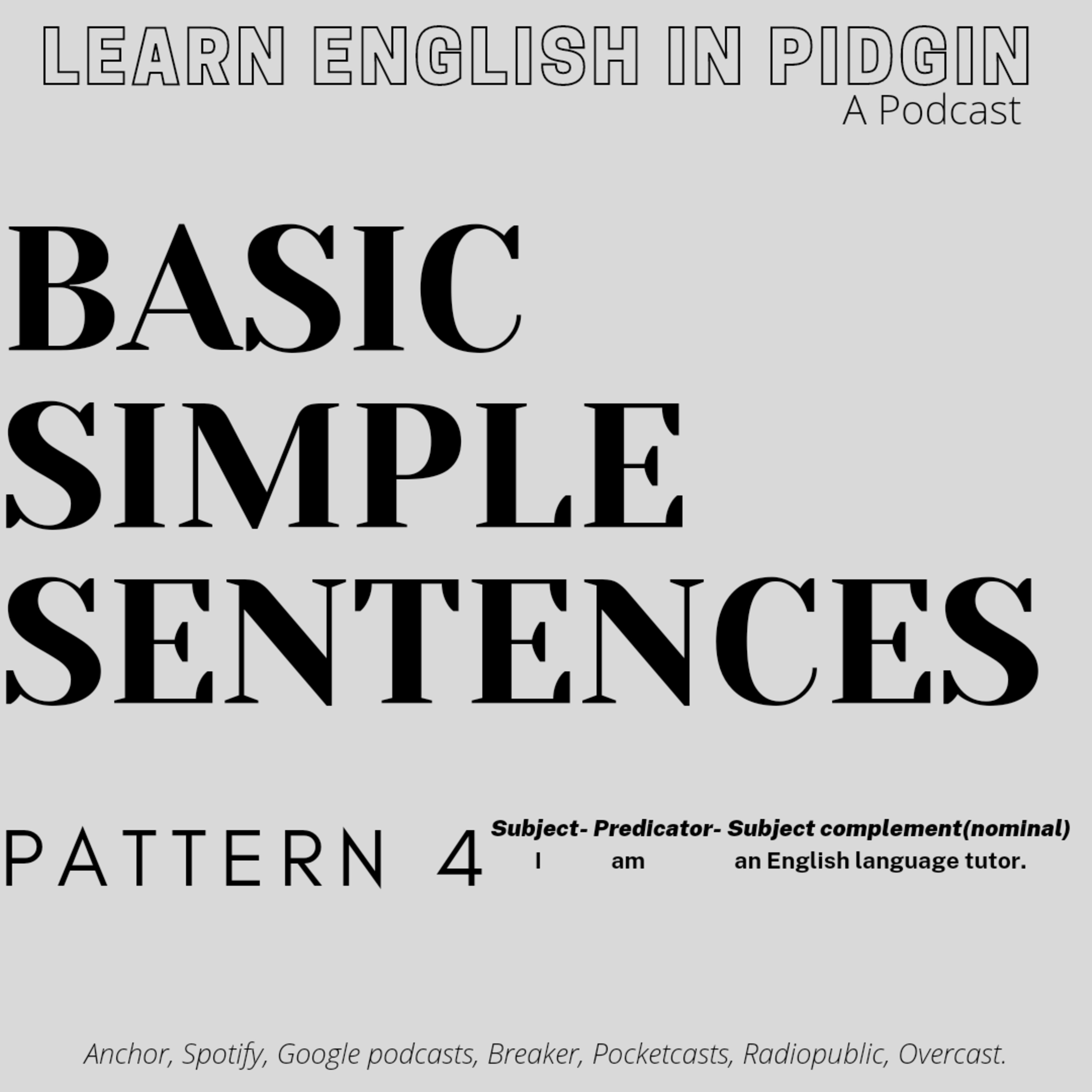
BASIC SIMPLE SENTENCES-PATTERN 4
The 4th pattern for forming basic simple sentences is the SUBJECT-VERB-NOMINAL SUBJECT COMPLEMENT.
We already established what the subject and verb are in previous episodes.
So today, we are focusing…
00:03:19 |
Sat 06 Feb 2021
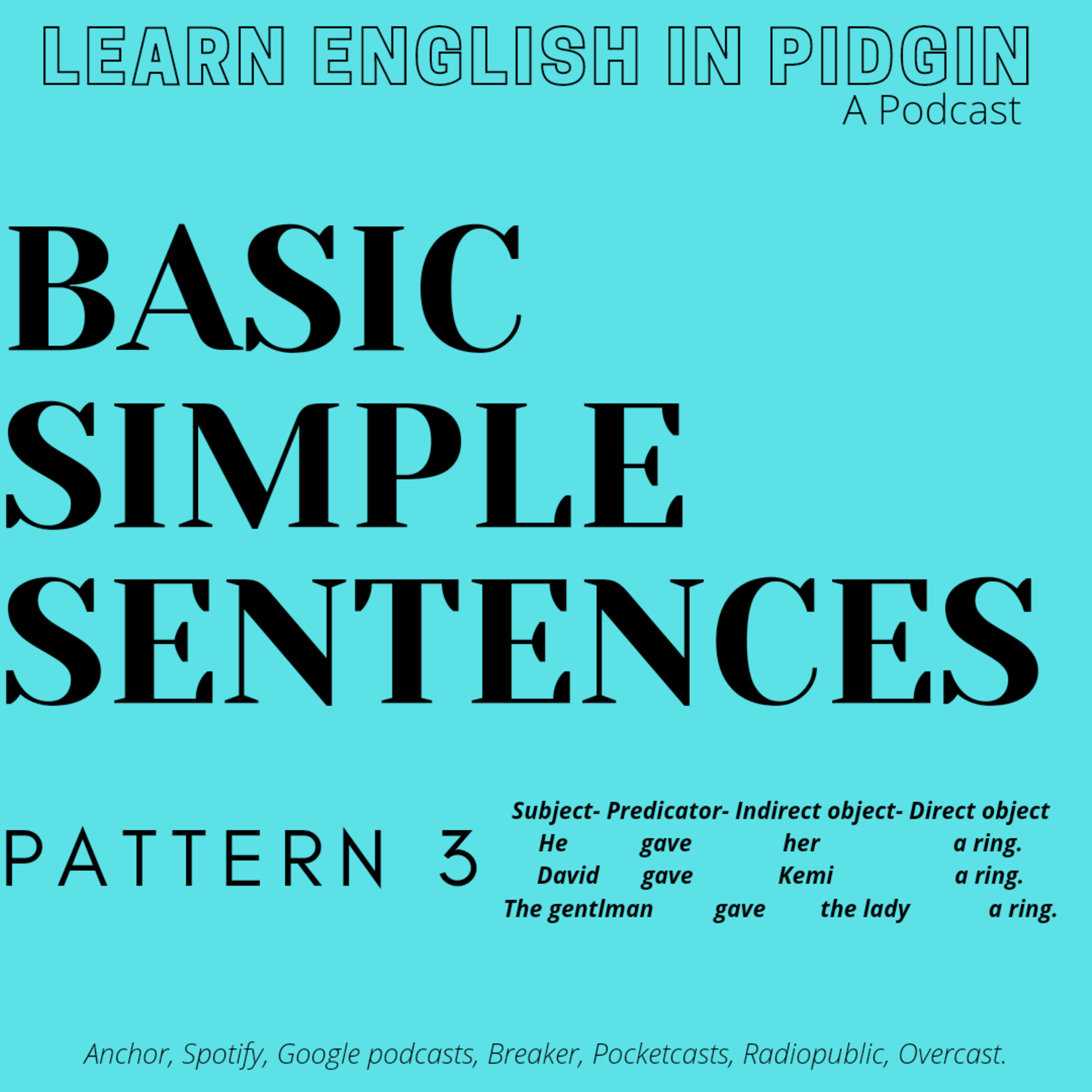
BASIC SIMPLE SENTENCES: PATTERN 3
This pattern has 4 parts: subject, predicator, indirect object, and the direct object.
The subject, direct object, and indirect objects are all realised with nouns and pronouns, noun phrases.
1. He …
00:04:04 |
Sat 23 Jan 2021
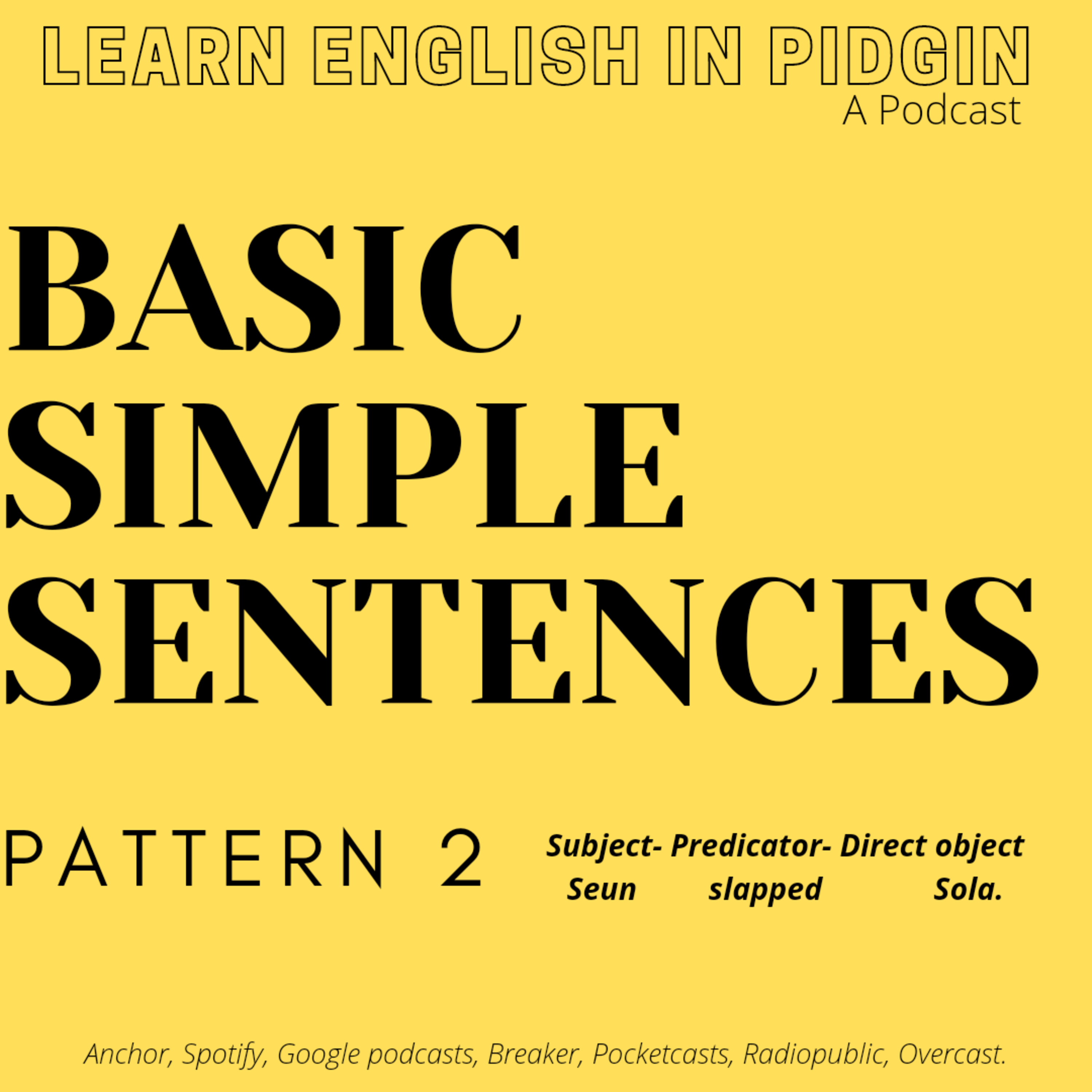
BASIC SIMPLE SENTENCES: PATTERN 2
The second pattern in forming the basic simple sentences is the SUBJECT-PREDICATOR-DIRECT OBJECT pattern.
The subject performs the action.
The predicator must be a transitive verb and its function is…
00:02:54 |
Sat 16 Jan 2021
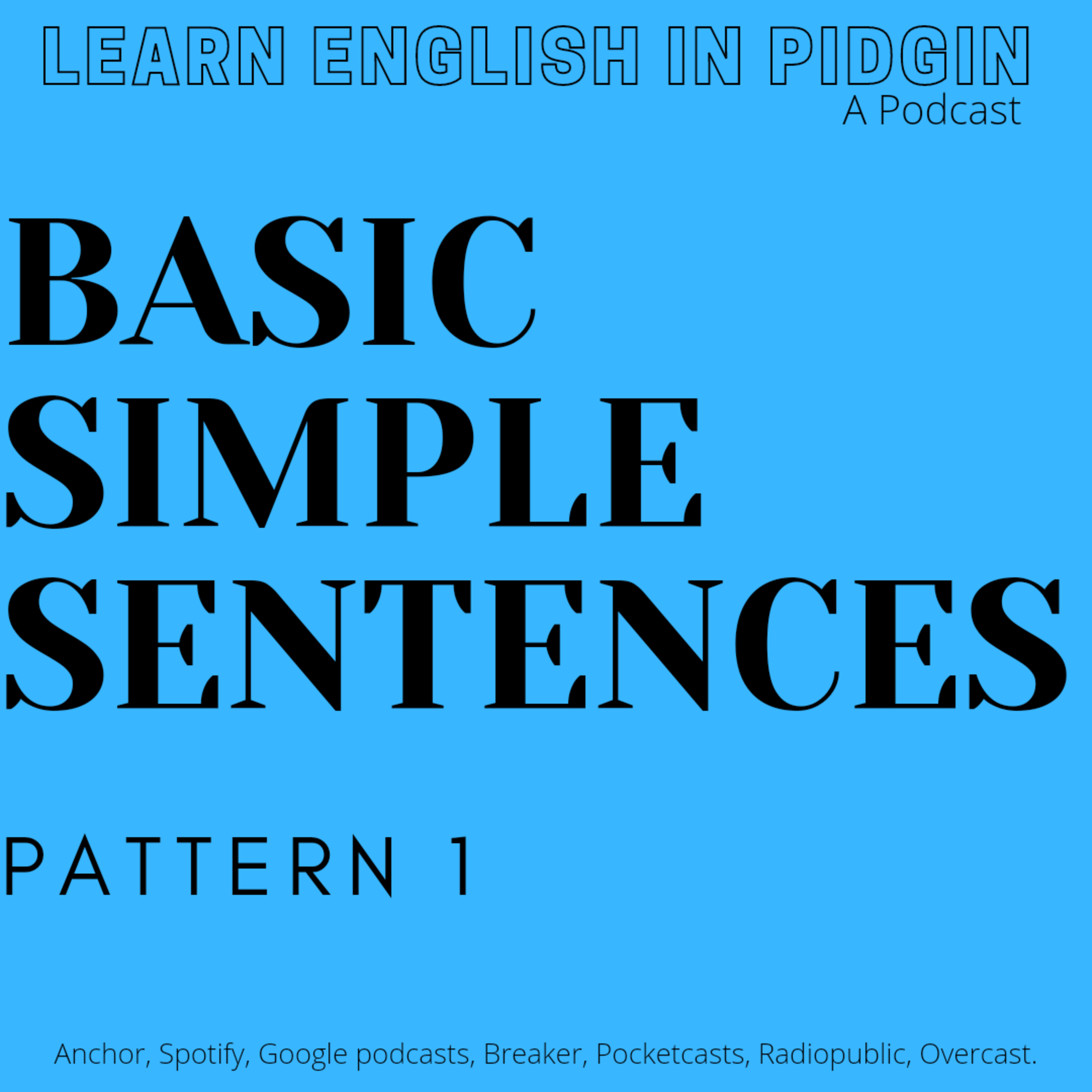
BASIC SIMPLE SENTENCES (PATTERN 1)
The first pattern in forming the basic simple sentences is the SUBJECT-PREDICATOR pattern. This pattern is foundational to any sentence formation. The subject is the first word in any sentence and it…
00:03:39 |
Sat 09 Jan 2021
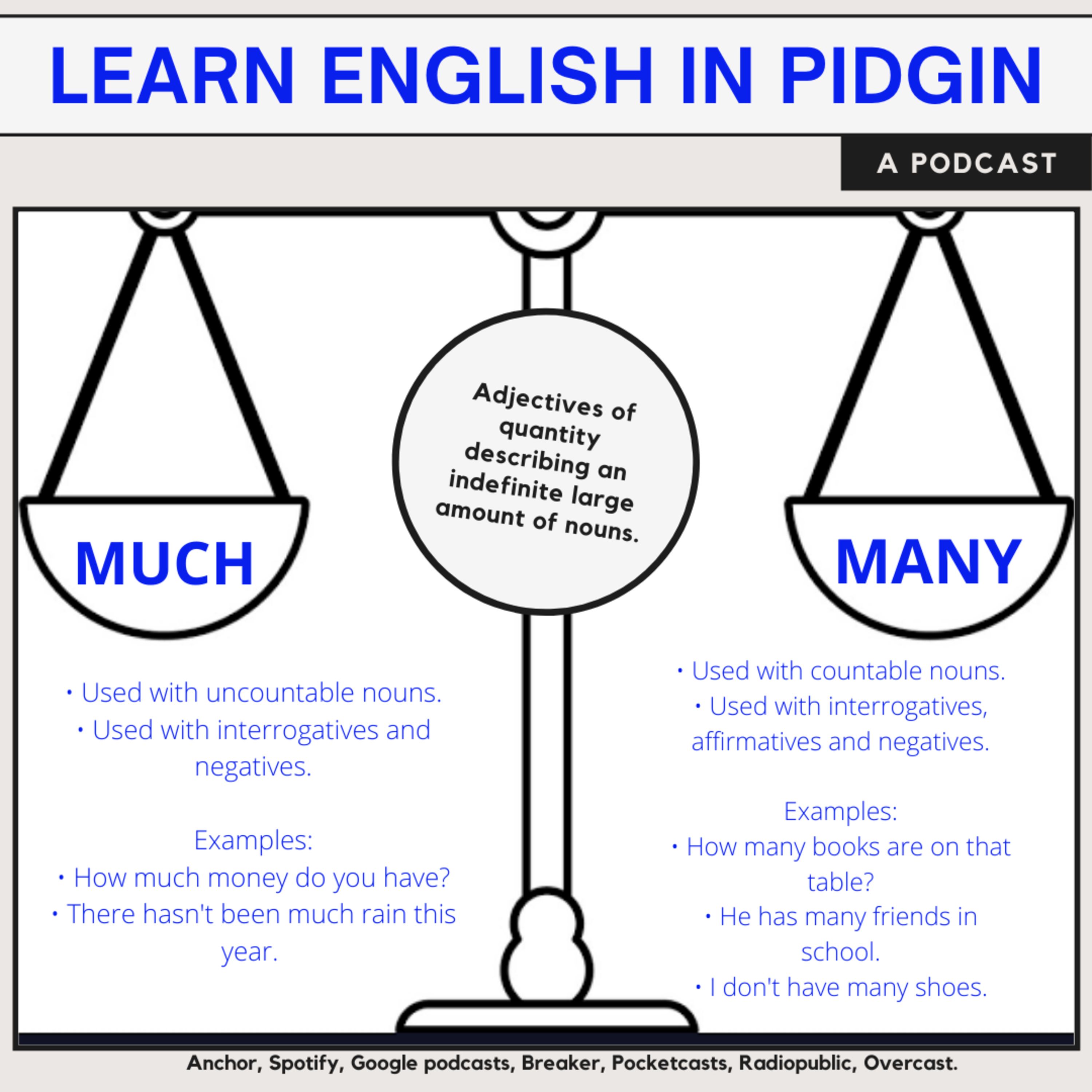
MUCH AND MANY (Adjectives of quantity)
Adjectives of quantity describes the largeness of nouns. Much and Many are adjectives of quantity that describes the indefinite largeness of nouns. …
00:04:39 |
Thu 03 Dec 2020
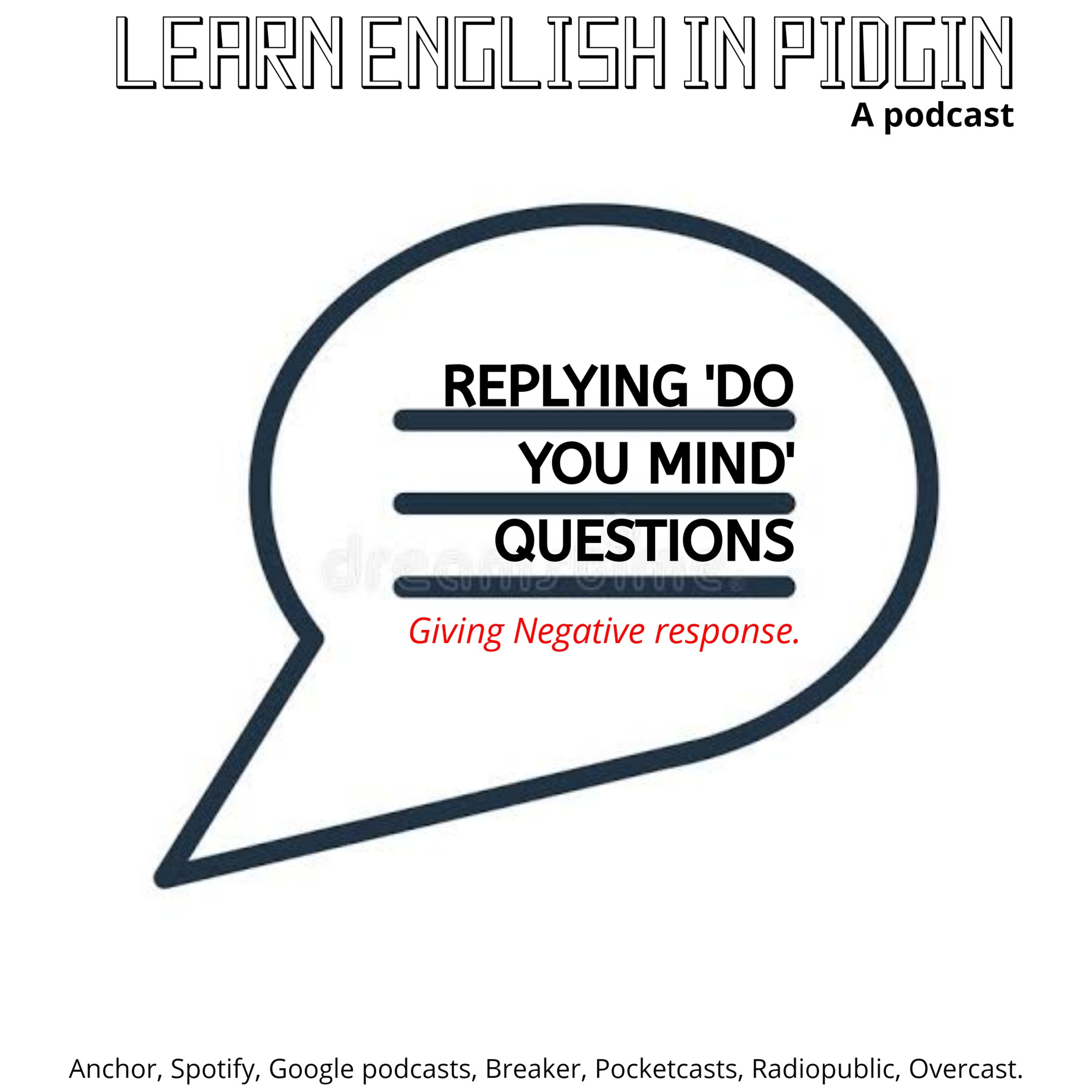
GIVING NEGATIVE RESPONSE TO 'DO YOU MIND' QUESTIONS.
Giving negative response to 'Do you mind' questions means that you are okay with the question be asked. You can answer this question with No, I don't, No, go ahead. TAKE AWAY:- "If you have no enemie…
00:02:12 |
Sat 21 Nov 2020
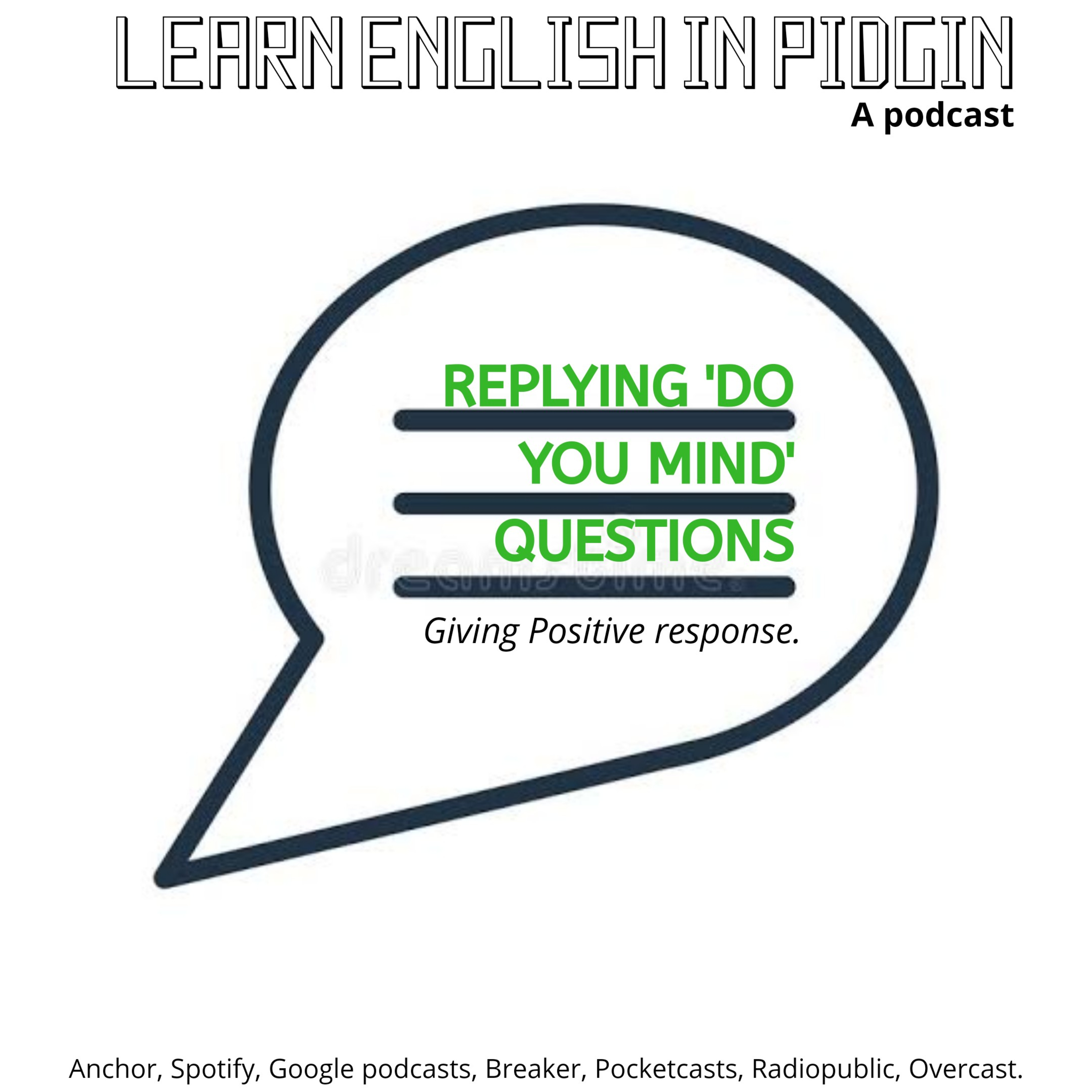
GIVING POSTIVE REPONSE TO 'DO YOU MIND QUESTIONS'
Giving positive response to 'Do You Mind' questions means that you have a problem with the question asked and you do not agree with it. TAKE AWAY:- "What could be better than to hold out your hand to…
00:04:38 |
Sat 21 Nov 2020
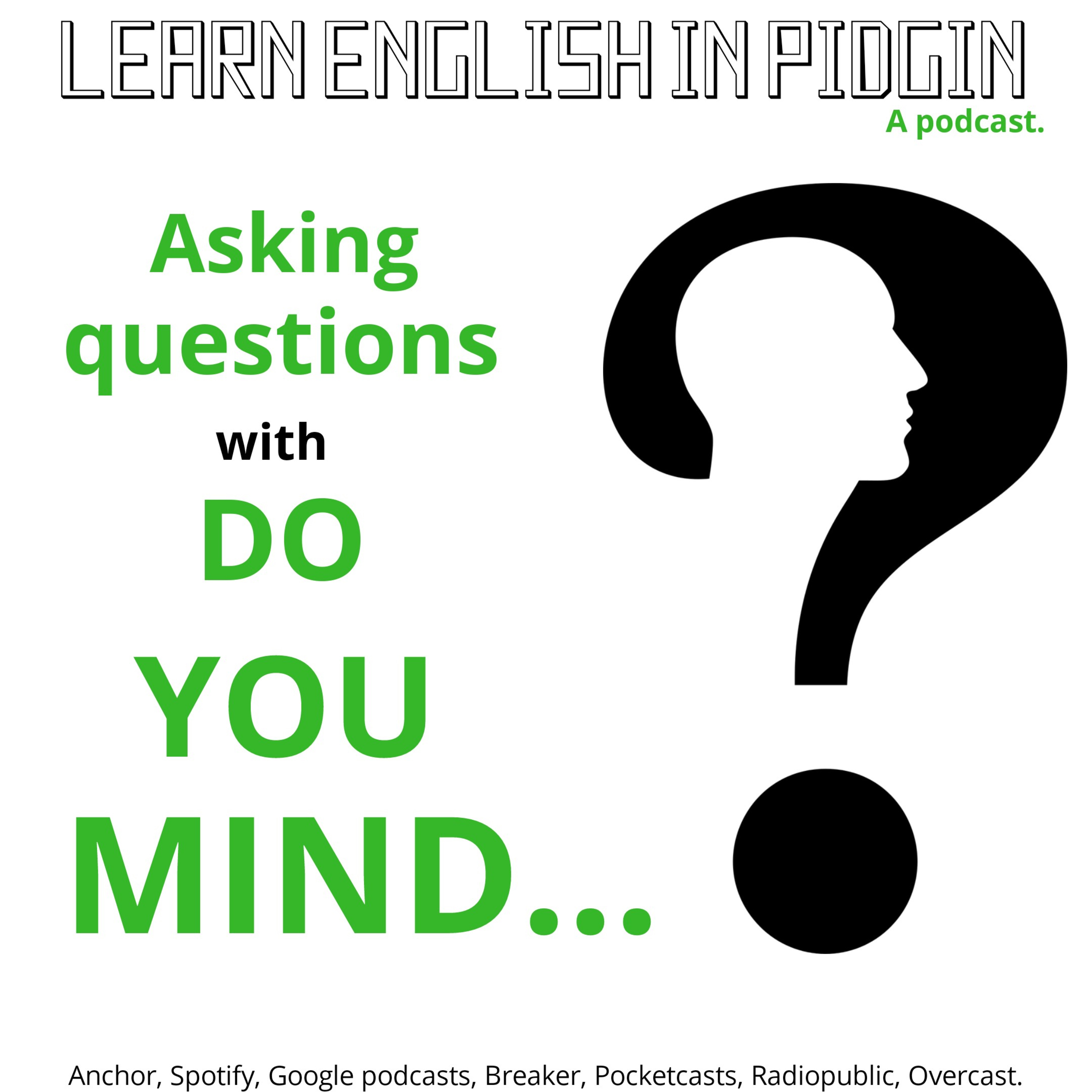
ASKING QUESTIONS WITH DO YOU MIND... PART 2
Do you mind if + VERB is used to ask someone if they object to something you are asking:
Do you mind if I excuse myself?
Do you mind if I ask your mum?
Also we don't need to add another "YOU" to "Do …
00:03:57 |
Fri 09 Oct 2020
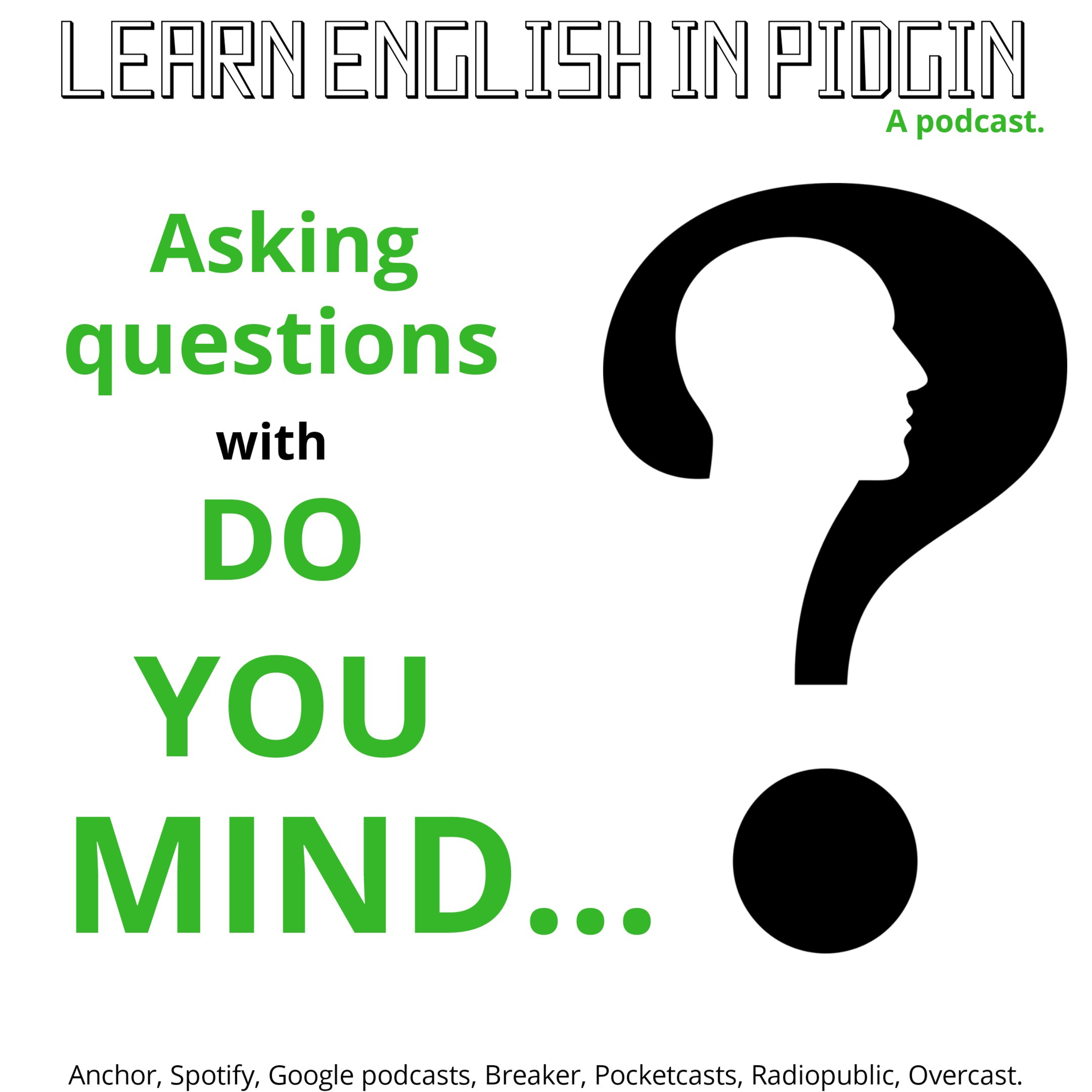
ASKING QUESTIONS WITH "DO YOU MIND..." (PART 1)
HAPPY 60TH INDEPENDENCE DAY NIGERIA. 'Do You Mind...' means 'do you have any problem with or does it bother you.'
We ask questions with 'Do You Mind...' when:
…
00:04:41 |
Fri 02 Oct 2020
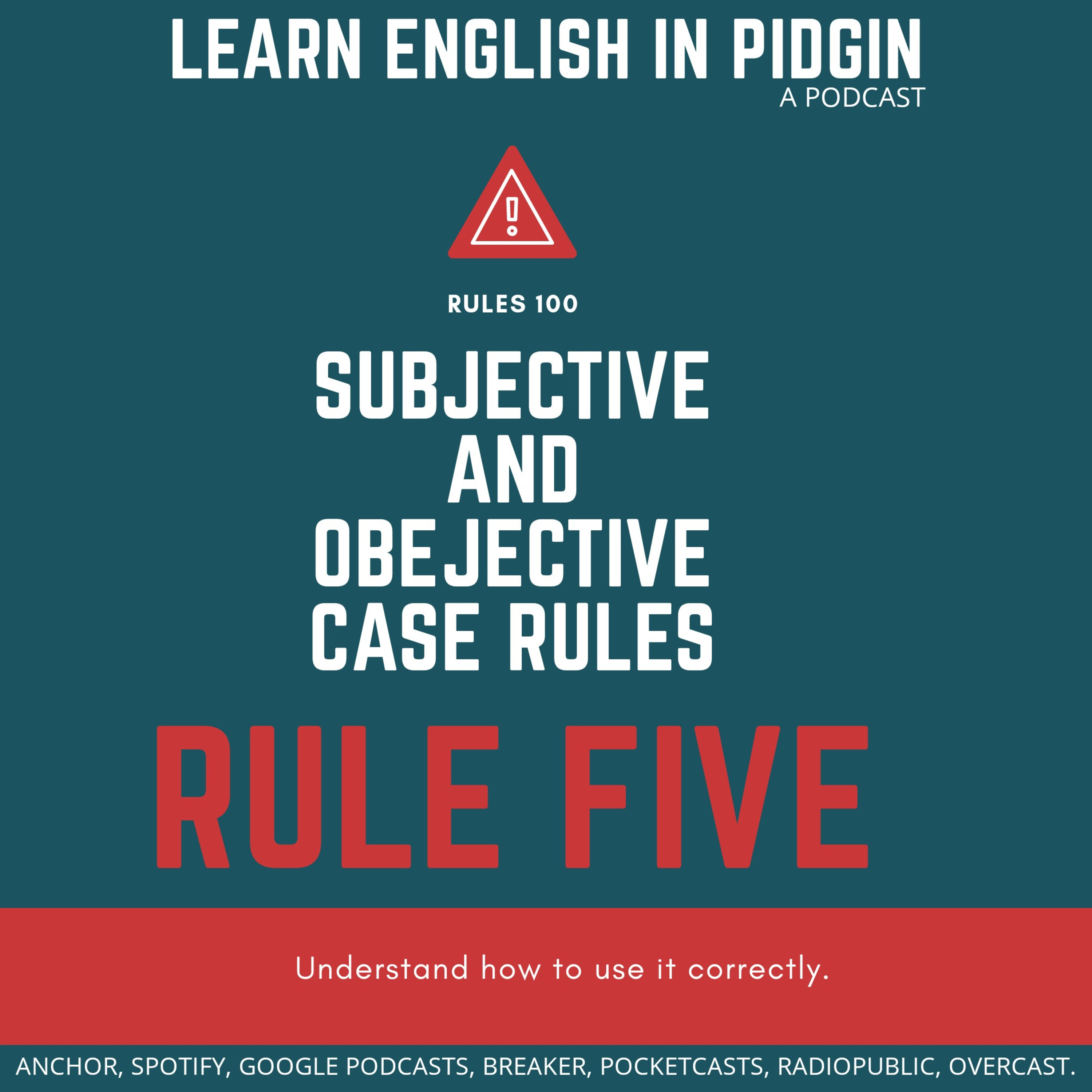
RULES 100:SUBJECTIVE/OBJECTIVE CASE RULES (RULE 105)
Rule 5 is the last rule of the subjective and objective case rules. Rule 5 says that, "when citing instances, the introduces we use determines the case. If the introducer is LIKE, the pronoun that wi…
00:03:29 |
Fri 18 Sep 2020
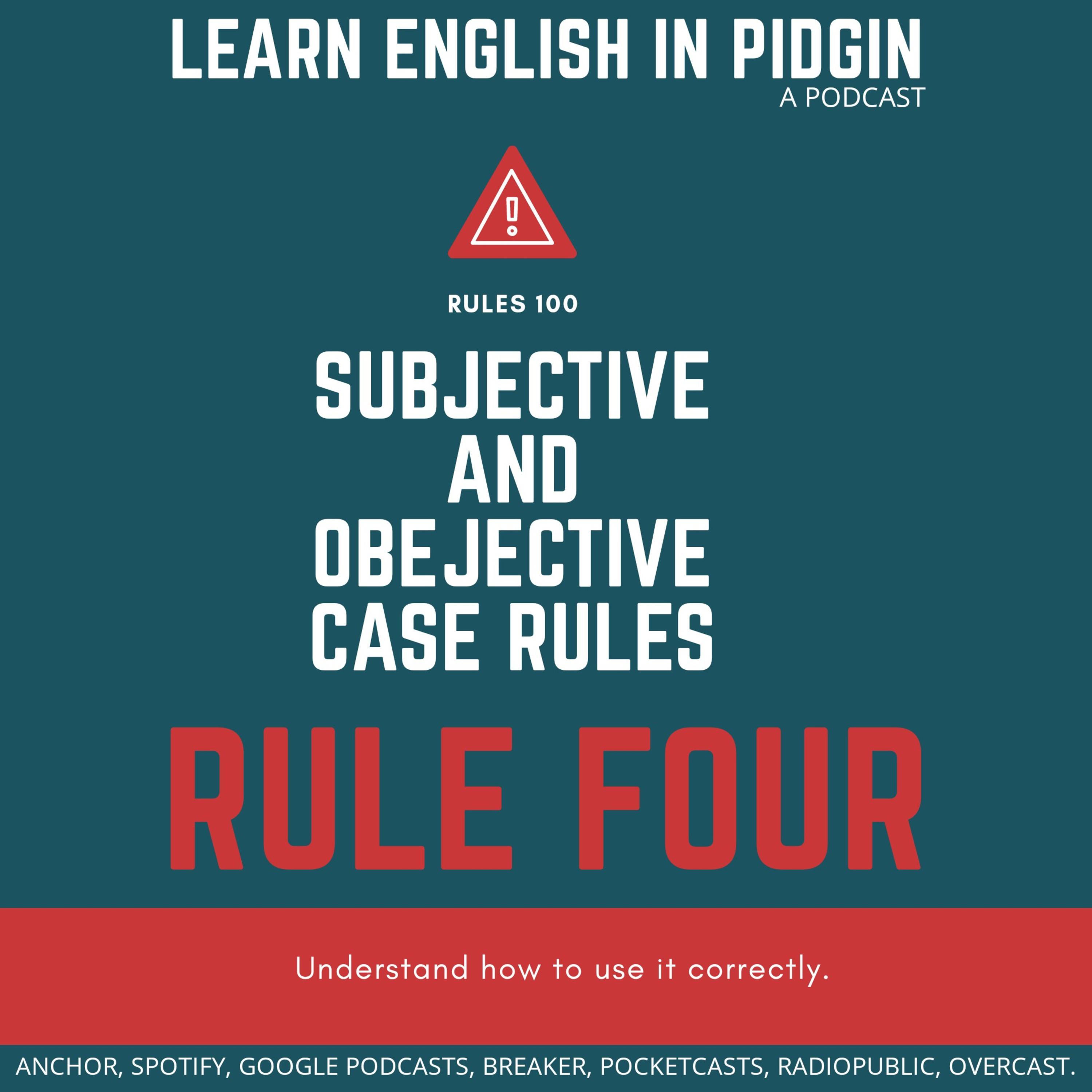
RULES 100: SUBJECTIVE AND OBJECTIVE CASE RULES (RULE 104)
Rule 4 says that,"when a question is asked with a verb of performance(main verb), we reply with a subject pronoun but when the verb is not a performance verb, we reply with an object pronoun.
Who is …
00:02:16 |
Wed 09 Sep 2020
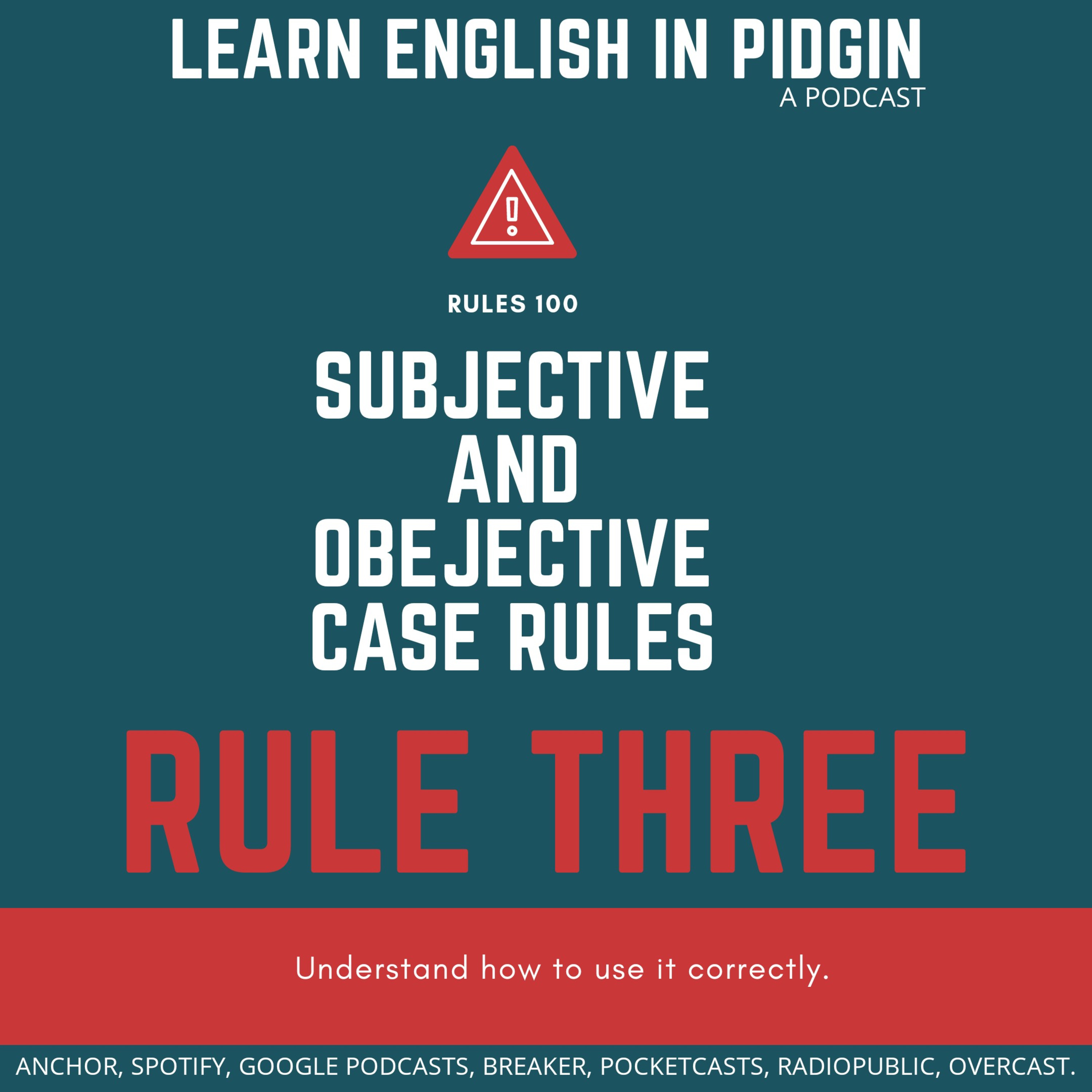
RULE 100: SUBJECTIVE/OBJECTIVE CASE RULES(RULE 103).
This episode talks about the third rule of the subjective and objective case rules which says, "When comparing, we use the subjective case of the personal pronouns at the object position."
Arsenal se…
00:03:19 |
Wed 02 Sep 2020
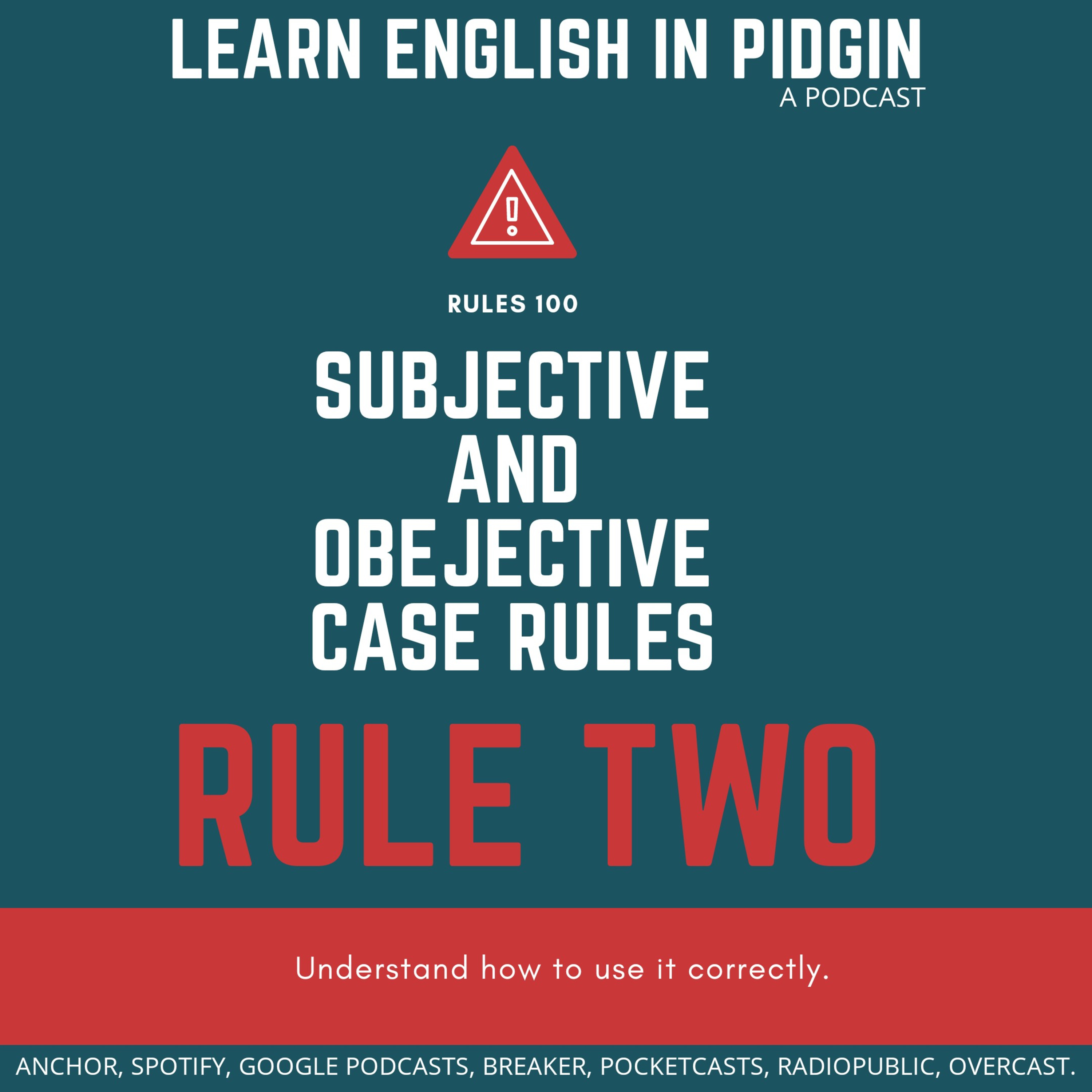
RULES 100: SUBJECTIVE/OBJECTIVE CASE RULES (RULES 102)
RULE 102:
The second rule of the Subjective and Onjective Case Rules says,"When a prepostion is used in a sentence, the object case of a personal pronoun should be used after it."
The apple was given…
00:04:01 |
Wed 26 Aug 2020
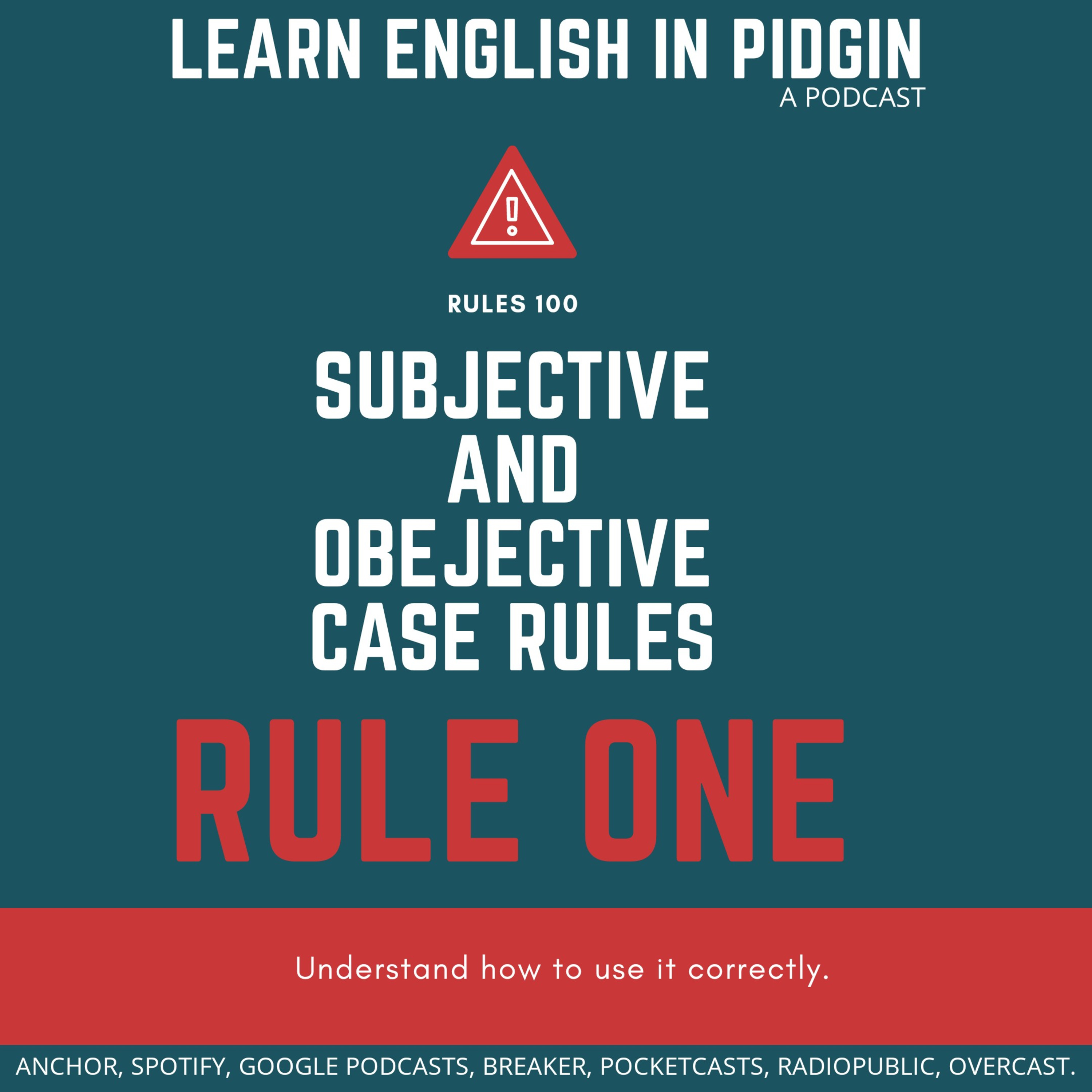
RULES 1OO: SUBJECTIVE AND OBJECTIVE CASE RULES (RULE 101)
This episode is about the first rule of subjective objective case rules which states that: When a third or second person, is used with the pronoun 'I/me', the second or third person should come first…
00:02:52 |
Wed 19 Aug 2020
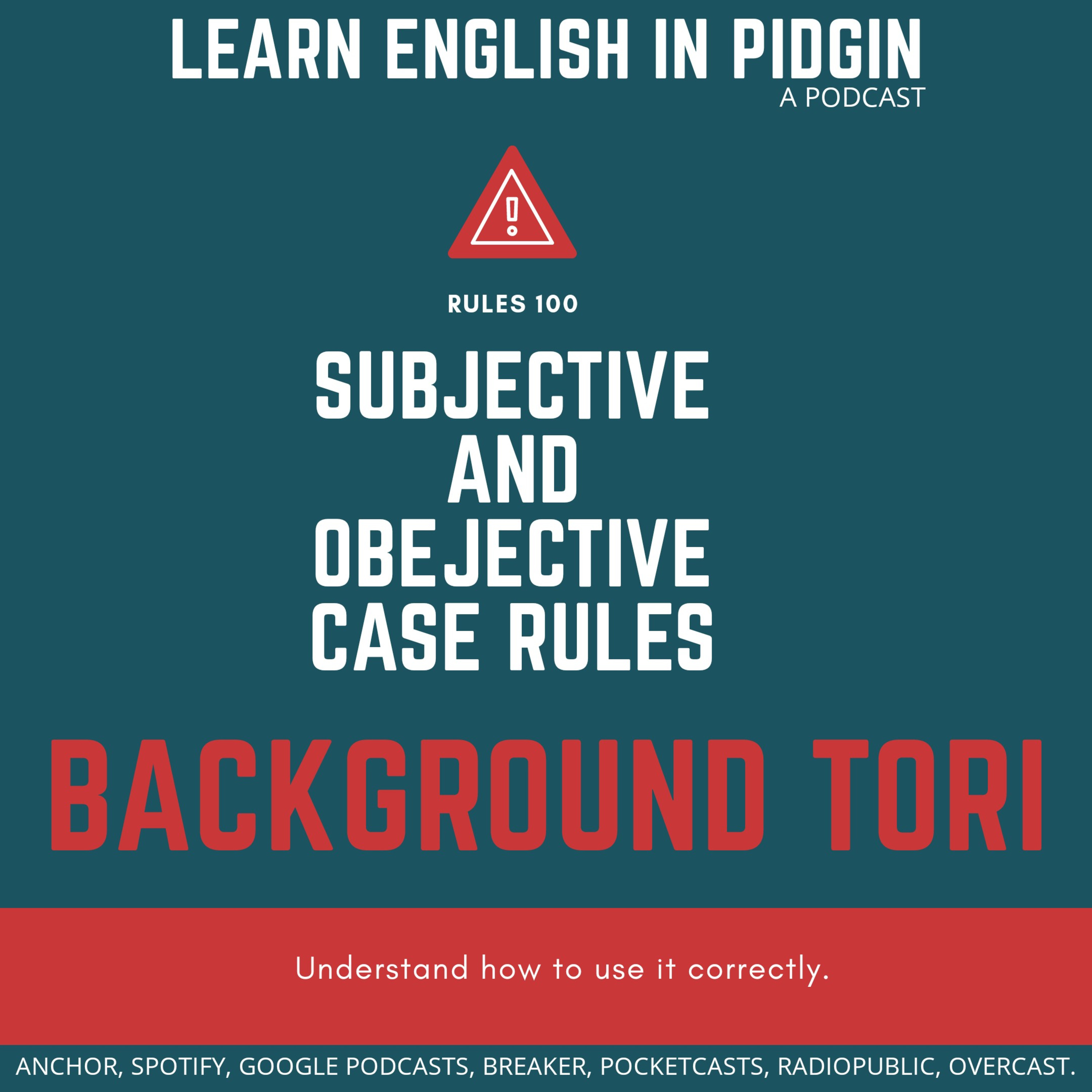
SUBJECTIVE/OBJECTIVE CASE RULES: BACKGROUND TORI
This episode talks about pronoun and the personal pronoun.
The pronoun is used to replace the a noun in order to avoid unnecessary repetition of the noun and boredom while reading.
The personal prono…
00:05:48 |
Wed 12 Aug 2020
Disclaimer: The podcast and artwork embedded on this page are the property of OLADOYIN FASAKIN. This content is not affiliated with or endorsed by eachpod.com.